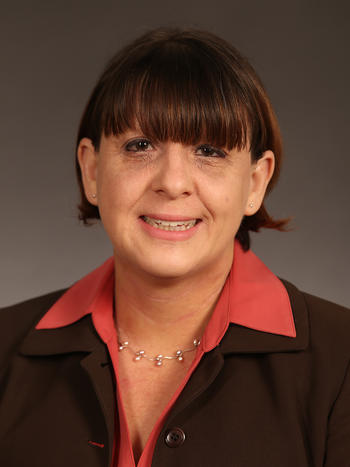
Professor Nikki Agee came to—and remains passionate about—the study of rhetoric and writing studies because of an awakening.
In a graduate class on postmodern rhetoric at the University of Texas, El Paso, Dr. Agee remembers that she and her peers read about the ways that language constructs our realities and our subjectivities. “This concept had never really occurred to me,” she remembers. That language constructs not only our political, social, and psychological realities but our choices about how to accept or change those realities was an epiphany that has shaped her thinking and work since.
“For the first time, I understood that rhetoric wasn’t merely a study of constructing argument or studying Aristotle and Plato,” she says. “I gradually experienced a kind of awakening to the power of language and to the notion that there wasn’t an area of our lives or being that wasn’t in some way shaped or motivated by rhetoric.”
Like students who take classes in English, theatre, and foreign languages, Dr. Agee embraces the power of language. “It creates subjectivities and agency, reveals power struggles within relationships and institutions, and performs interventions; it reveals ideologies, fosters relationships of trust and suspicion, and forms cultures and values,” she says. “It is the means through which individuals forge new possibilities for the themselves and improve social conditions for others.”
Dr. Agee brings her study of language to life across a host of innovative courses, from first-year composition and advanced composition to technical and professional writing and workplace writing. Students who take her classes practice their skills across a range of genres, from written memos, letters, and proposals; sometimes, students have the opportunity to develop a business plan for a business they would like to launch or to support the work of local nonprofit organizations.
She also brings to her classrooms unique experiences across disciplines and workplaces. During her graduate studies at the University of Texas, El Paso, she broadened her professional skills and abilities by serving as a research associate in UTEP’s Department of Metallurgical, Materials & Biomedical Engineering, revised and edited documents for the graduate school, and worked as a technical writer and editor for the Department of Civil Engineering and Center for Research in Engineering and Technology Education.
But students might be surprised to know that Dr. Agee enlisted in the U.S. Army. As a public affairs specialist stationed at Fort Bliss in Texas, she served as a soldier advocate, media liaison, photographer, reporter, and editor for various units, including the 507th Maintenance Company and the 5035th Garrison Support Unit.
For Dr. Agee, her ROTC classes during her days as an undergraduate Honors student in English and American Literature at the University of Texas, Austin, were life-changing. Her ROTC class was small, she remembers, and her sergeant’s personality and leadership fostered a collaborative team environment, something she had never experienced before.
“Class members supported and mentored each other, almost like an extended family,” she says. “My ROTC class was also different because it challenged me in non-academic ways, and it forced me to practice skills that I’d never had to use in college.”
Dr. Agee and her classmates had to practice leadership, exercise daily, problem-solve and work in teams, learn survival skills, and practice rifle marksmanship.
“None of these skills came easy to me, and I learned many lessons the hard way,” she remembers. “But ROTC was one of the most interesting and important courses I’ve ever taken, and I still have vivid memories of the course, my peers, and my sergeants.”
As Dr. Agee thinks about teaching at UNCP, it might be her experience overcoming challenges—no matter what—that inspires her advice for students.
“In terms of life lessons, I want students to know that everything’s possible,” she says. “The ‘impossible’ just takes longer and requires a lot more time, effort, and dedication.”